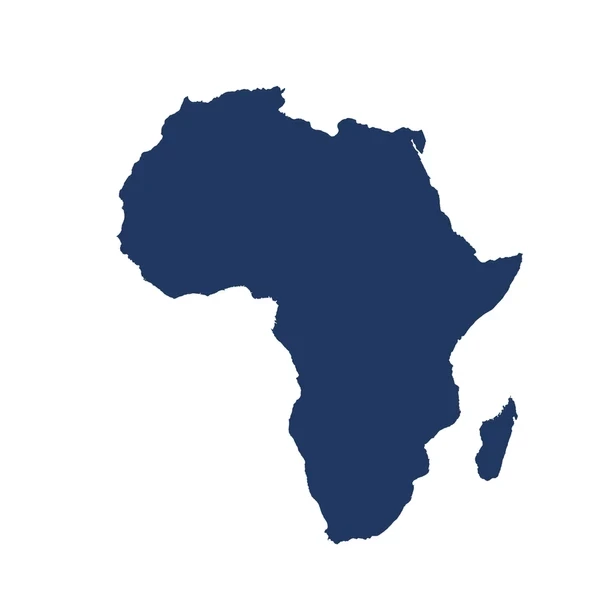
The government, through Information minister Jenfran Muswere, has announced a significant shift in land policy, declaring that state land, previously offered to local indigenous people under the “land reform” exercises beginning 1999 is now "bankable, registrable, and transferable" for Indigenous Zimbabweans.
This marked a departure from previous policies where this land was primarily state-controlled and not easily transferable.
The new policy is said to enhance investment and productivity in the agricultural sector by allowing landholders to use it as collateral and transfer ownership, thereby potentially unlocking capital for development.
Zimbabwe is delicately poised to embark on a transformative land policy that echoes the seismic shifts of post-Soviet Russia.
And with it the spectre of oligarchy that looms, however.
Will this bold move create a new class of land barons, or can it pave the way for equitable agricultural growth, instantly propelling the economy to unabated growth?
The parallels with the USSR's privatisation are striking.
In the 1990s, Russia's rapid transition from state-controlled assets to private ownership led to the concentration of wealth in the hands of a few, giving birth to powerful oligarchs.
- Economic lessons from USSR: Is Zim about to create land oligarchs?
- Cautious optimism over Maphisa Uhuru fete
Keep Reading
Now, as Zimbabwe allows the sale of 99-year leased land, we must ask: Are we witnessing history repeating itself, as the majority of the poor leaseholders would easily take the option to “sell" than scratch the ground for an uncertain produce, as compared to certain sell-payment?
How long before this concentrates land in the hands of the very few?
Understandably, this policy shift aims to unlock capital and foster investment in agriculture, a critical sector that contributes 10.2% to Zimbabwe's GDP and employs 66% of the labour force.
Be that as it may, the stakes are high. 12 million hectares of land was redistributed to over 150,000 families.
Yet a waiting list still of 200 000 more still remains. How do they feel now that the erstwhile free land is now “for sale"? The potential for unintended consequences is vast.
Statistics about Zimbabwe's GDP vary so much from around US$ 30 billion to US$47 billion, depending on who you ask.
For our case, the per capita income of just US$1,300 (even where we take the upper limit of US$2 300) paints a picture of very few who can afford a 300 hectare farm for the reported US$1 2 million we have heard as quotation.
At that price, if true, how many will have the means to purchase the farms, even if allowed to subdivide?
The risk of creating a land oligarchy is not just theoretical; it's a pressing concern that demands careful consideration.
The new policy, which allows for the outright sale of the land and transfer of ownership, is expected to have safeguards in place to ensure that land reform efforts are not undone.
They are yet to be announced, but we trust surely they are in place, besides the need for a buyer to be an “indigenous Zimbabwean.”
Itself a very contentious discussion, but one we will not delve to on here.
Just as much as we will not indulge in the legal intricacies of the incongruity of what the Zimbabwe constitution says about state land s opposed to what this policy is now proposing.
Both important discussions in their own right, and therefore needing the appropriate legal expertise to untangle and elucidate on them, than to have me, a finance expert, to muddy the water by parroting rhetoric.
As we delve deeper into this complex issue, we must consider the lessons from other nations.
Zambia's experience with land privatisation led to significant portions being owned by wealthy individuals, disadvantaging the majority.
How can Zimbabwe avoid this pitfall as experienced by its northern border neighbour?
Moreover, the spectre of Rhodesia's past looms large.
During colonialism, the segregation was engrained through policy.
For instance, policies requiring one to have a tax number and education levels beyond Standard 3 to be able to vote.
This was a tacit target on native Africans, who hardly had means to have a taxable income at all, mainly because the government then provided free education up to Standard 3.
This in itself then fed into poverty, which also in turn the ability to continue education – a vicious cycle of poverty all engendered by deliberate policy and, by design, an inequality maintenance tool.
This new Zimbabwe's land policy, without safeguards, may inadvertently create similar economic barriers for the poor that my create modern vortices of poverty.
As we delve deeper into Zimbabwe's land policy shift, the financial mechanisms and economic theories at play become crucial.
How can the nation harness the potential benefits of state land transfer while avoiding the pitfalls of oligarchic concentration?
The answer lies in a carefully crafted blend of fiscal policy, market regulation, and incentive structures.
Let's consider capital gains tax (CGT) as a primary tool.
Given that beneficiaries received land for free, should the entire sale price of a lease be considered a gain?
I would aver that a tiered CGT structure could discourage short-term speculation while rewarding long-term agricultural investment.
For instance, a full 20% rate for transfers within 20 years of allocation, dropping to 10% for 20-30 years, and 5% thereafter.
This approach will align with the goal of sustainable land use and development.
But CGT alone isn't enough. Stamp duty on land transfers, set at a flat 3% of the transfer value, could generate revenue and regulate market activity.
Exemptions for family transfers or agricultural consolidation, similar to Ireland's farm restructuring relief, could prevent unintended obstacles to efficient land use.
Then funds raised this way should not go the national purse (Consolidated Revenue Fund), but straight to agriculture supporting financial institutions, like AFC Bank or CBZ Agro Division.
This will capacitate the remaining poor farmers to be productive where they collaterise their land to access inputs and implements funding, enticing them away from the lure of also selling the land.
Where they fail to pay the funding guarantor being the state that land reverts to state land and therefore available to those already in the waiting list.
Speaking of government assistance, what of those farmers that benefitted from various national mechanisation schemes offered to landholders since 2000?
It's only fair that these investments are recovered upon land transfer from those who choose still to sale the land instead of being productive even after being resourced – dare I say “including interest at market-rate.
This ensures that state investments are recouped and prevents unjust enrichment while lightening the burden on the fiscus as that debt has been transferred to all Zimbabweans as a treasury debt.
This was done via the signing of the RBZ Debt Assumption Act of 2015 with government taking liability of an estimated $1.35 billion private debt incurred by the Zimbabwe central bank while funding “new farmers” from 2000 to 2008.
Then there is the contentious matter of some landholders who already benefited unfairly helping themselves to multiple farms during the distribution exercise, evidently, despite the "one person, one farm" policy under which land was distributed.
Since now land is a “salable” commodity if the new policy is passed, what will be done to rectify this self aggrandising lot?
Are they the ‘hidden’ oligarchs among us who will now be allowed to profit unfairly?
I surmise these accumulated vast tracts of land may now be registered under different names or corporate entities to boost these individuals' net worth, and possibly for speculation, instead of production.
- Dr Admire Maparadza Dube Is a finance analyst with 20 years’ experience covering wealth funds, news agencies, banks and a tax authority in four countries spread over three continents. Views stated herein are his own and he can been reached on info@admiremaparadzadube.com










